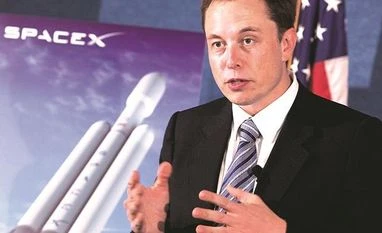Elon Musk has been thrown under the bus for his series of tweets earlier this week. He tweeted that people need to work from around 80 to over 100 hours per week and that he himself worked 120 hours per week, while everyone else at Tesla worked 100 hours per week at times this year, as the company ramped up production of its Model 3 sedan. The Tesla and SpaceX chief also said there were way easier places to work, but nobody ever “changed the world” on 40 hours a week.
The kindest advice Musk has received to his tweets so far is to “get some sleep”. But most have torn him apart by accusing him of romanticising overwork and leading the toxic culture of putting an exorbitant amount of pressure on himself and his colleagues. Musk’s detractors have a point: It’s true that corporates all over the world are united in spreading the message that you are not good enough if you are not driving yourself crazy with all-nighters.
There is enough scientific evidence to prove that message wrong. Working crazy hours can be counter-productive and can lead to mental health issues, sleep problems, stress and other problems. Research shows that anything beyond a threshold actually lowers your productivity. In fact, health care expenses are almost 50 per cent higher for people who report high levels of stress.
That’s bad news for people like Musk who enjoy their job so much that they just work, and work, and work. They find that appealing; but their subordinates mostly find that appalling. Psychologists refer to them as people with an obsessive compulsive disorder and that it’s got to do more with constantly thinking and talking about work whether they are at home or on the ski slopes. India is also fast catching up with the growing trend of super-busy CEOs who are forgetting to turn off their mobile phones.
But Musk and his tribe needn’t despair. In fact, their view that all this is just some fuzzy HR jargon also deserves a sympathetic ear. Superstar entrepreneurs and leaders are driven by passion, hard work and are proud of it, and are convinced a perfect work-life balance is only for the unambitious.
Super-successful people know that extraordinary talent or luck can take them up to a point, and what distinguishes them from the merely talented is their willingness to push the envelope — getting into the workplace earlier, stay later, and do more than everyone else. GE’s former chief executive Jeff Immelt himself said, he worked 100 hours a week for over 25 years.
He is in good company. One of the reasons Tim Cook got the job that Steve Jobs held at Apple was that he does an incredible amount of hard work, which means he is often the first in the office and last to leave.
And read this stuff from dropoutdudes.com: Pepsi’s just-retired CEO Indra Nooyi worked midnight to 5 am as a receptionist to earn money while getting her Master's at Yale. In an interview for a speakers series at Pepsi, she describes coming in to work every day at 7 am, rarely leaving before 8 pm, taking home bags of mail to read overnight, and wishing there were 35 hours a day in order to do more work. She did all of this while raising two young daughters.
Some CEOs such as Amazon’s Jeff Bezos has advised his colleagues to “work hard, have fun and make history”. But Bezos’ own life story shows the incredible hard work he has put in at the expense of fun. His early days at Amazon were characterised by working 12-hour days, seven days a week, and being up until 3 am to get books shipped. There is no evidence to prove that Bezos has reduced his working hours much, and it’s obvious that for him, work remains fun.
Look at what Musk himself has achieved through his hard work. Even his detractors would admit that he is an innovator, disruptor and a game-changer.
The moral of the story is simple. If you want to take the staircase to the corner office, give more weightage to life than work, but if you want to take the elevator to the same office, the reverse is the route for you. Fix your priorities, unless you are among the fortunate few who can have the cake and eat it too.
Unlock 30+ premium stories daily hand-picked by our editors, across devices on browser and app.
Pick your 5 favourite companies, get a daily email with all news updates on them.
Full access to our intuitive epaper - clip, save, share articles from any device; newspaper archives from 2006.
Preferential invites to Business Standard events.
Curated newsletters on markets, personal finance, policy & politics, start-ups, technology, and more.
)